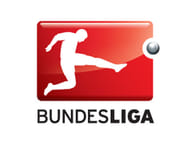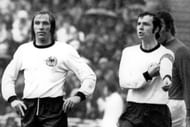
In European football, fans have become accustomed to the league titles in different countries being won by a select few teams year after year. However, in recent times, the traditional tide has been changing in Germany’s Bundesliga. Bayern Munich don’t have the same iron grip on the Bundesliga that they had for so long. This season, Borussia Dortmund, by replacing large expenditure with an unnerving faith in youth, have romped to the German league title. Before you get into the topic that I am aiming at, let’s look back at the previous years even before the start of the league back in 1963.
Pre Bundesliga days
Between the late 1920′s till 1963, 7 different clubs had won Italy’s Serie A, 8 different teams triumphed in Spain’s La Liga and 13 different clubs were the League Champions in England. However in Germany, around 17 different clubs emerged with national titles during the same span. Nuremberg during the 20′s followed by Schalke in the 30′s were the dominant forces during that period. However once the Second World War ended, no team ever managed to ‘dominate’ the league for continuous years.
1964-1970
The start of Germany’s official national league saw 7 different champions in seven years. Starting with Cologne in ’64 and ending with Monchengladbach in 1970.
1964 – Cologne
1965 – Werder Bremen
1966 – 1860 Munich
1967 – Eintrach Braunschweig
1968 – Nuremberg
1969 – Bayern Munich
1970 - Monchengladbach
As seen above, no single team was able to dominate the league through the 1960s. The 1965–66 season saw the promotion of Bayern Munich to the top league and in 1968–69 they won their first championship on their way to becoming the most dominant side in Bundesliga history. So those at the top just couldn’t stay put, except for the latter two Bayern and Gladbach. In the same period Spain had two different winners, Italy with four and England with five.
1971 – 1980

Good vs Evil: Netzer and Beckenbaur
Amidst the Bundesliga scandal, the 1970′s saw two sides emerging as the most dominant forces in German football. The rivalry turned so intense that the entire country was divided into two. One camp was with Bayern Munich, and the other, Gladbach and the rest of the country. Netzer vs Beckenbauer, Good vs evil etc were some of the terms that appeared on a daily basis in the media regarding these two teams. Monchengladbach became the first team to successfully defend its title with its win in the 1970–71 season. Bayern Munich became the first team to win three titles on the trot with wins in 1971–72, 1972–73 and 1973–74. Borussia Mönchengladbach then turned a triple of its own over the following three seasons. After wins by Köln in 1978 and Hamburg in 1979, Bayern closed out the decade by matching Mönchengladbach’s five titles, thus making the league have only four winners during this decade. In the same period , Spain also had four, Italy and England had five.
1981 – 1990
This decade saw the decline of Gladbach. The German game became a graceless, rough-edged, brute physical contest devoid of the kinds of star players fans had enjoyed watching in earlier decades. The best German players were regularly lured south to play in Serie A by cash-rich Italian clubs. Bayern’s domination of the Bundesliga became numbingly repetitive as they took six of ten titles in the 1980′s. In total the 80′s had four different Bundesliga winners. Hamburg in 1982 and 1983, Stuttgart in 84, Werder Bremen in 88 and the dominant Bayern in the remaining years. Spain and England also saw four winners during this time and Italy with six.
1991 – 2000
The 90′s marked a whole new change in the Bundesliga. East German sides were seeded and assigned to various levels within the West German league structure, which was itself modified to accommodate the influx of new clubs. To facilitate the union with the Eastern league, the Bundesliga temporarily expanded to 20 clubs in the 1991–92 season. This decade saw five different clubs win the Bundesliga. Kaiserslautern in 1991 and 1998, Stuttgart in 1992, Werder Bremen in 1993, Borussia Dortmund in 1995 and 1996 and last but never the least, Bayern in 1994, 97,99 and the end of the decade in 2000.
In the 1995–96 season, the league adopted a new scoring system. Teams were now awarded three points for a win rather than two as had been traditional, with a view toward encouraging more effort through a greater reward in the standings. During this time , Spain, England and Italy had four winners.
2001 – present
Since 2001, the German Bundesliga has seen five different champions despite Bayern who won it in 01, 03,05,06,08,10 for a total of six times, Dortmund in ’02 and the latest in 2011. Werder in 2004, Stuttgart in 2007 and Wolfsburg in 2009. These years have seen Spain and England have only three and Italy with four different champions . So this is where my first sentence comes to place.
Of course by the stats above, I am not trying to prove the league’s competitiveness or by any instance trying to debate on which league is superior and which league is not (we have the coefficients for that). However it does show a change in tide that the Bundesliga is having in the past few years, with a number of different teams emerging champions whereas the Spanish, Italian and English leagues were mainly dominated by one or two forces. True, Bayern have continued to be stable unlike the roller coaster ride most Bundesliga sides have faced , however their domination on a regular basis is no longer a threat(atleast for now).
So now let us see the main reason I used the word ‘bizarre’ in the title. And let’s go from forward to backwards, unlike starting from the early years as before.
Borussia Dortmund
The 90′s was a time where most Germans actually believed that the time of Bayern had finally come to an end. With Dortmund being the new German superpower, everything seemed perfectly well for them. Dortmund’s new financial power meant that they could rival the huge salaries paid in Italy. They also became the first German club to bring back star players. And they did so in large numbers with Reuter, Kohler, Moller Reidle and of course Matthias Sammer. With a world class coach in Ottmar Hitzfeld, the club won two championships (1995 and 1996), the European cup (1997) and even the World Club Championship. Giants Bayern, on the other hand, had hardly won anything since the fall of the Wall. Their last cup victory dated back to 1986 and had won the league championship just once in six seasons.
However just like Gladbach in the 80′s Dortmund too failed. Bad decisions in the management saw the club suffer massive debts and they were no longer able to hold on to most of their star players over time. Staring from 2000, the club has seen 11 different league positions every season. From 11th in 2000 to winning the league in 2002 , followed by another roller coaster ride to as far as 13th in 2008 to finally winning this season, Dortmund have portrayed how every new year is a completely different story in the league finishing in eight different league positions since the dawn of the new millennium.
Wolfsburg had played in the third division from 1977 to 1992, followed by 2.Bundesliga in 1992-93 and finally promoted to the big stage in 1997. A corporate owned club, none would ever imagine that a club that spent a majority of its history outside the Bundesliga would ever come to win it in the 2009 season. A season before, they finished 5th. And the 2005-06 and 2006-07 seasons saw them finish just above the relegation zone at 15th. In their winning season of 2009, the league saw a novice champion for the first time since 1970, when Gladbach celebrated their debut title. (When Dortmund won the Bundesliga in 1995, it was the club’s first league title but not their first national championship.) And Wolfsburg truly deserved the league that season. They were nothing short of amazing over the entire season. The interplay between set-up man Zvjezdan Misimovic and the two deadly strikers, Grafite and Dzeko was a treat to watch. But where did they finish the next following seasons? 8th and currently back to their favorite 15th spot as I am currently writing this article.
The 2006 -07 season seen Stuttgart emerge German Champions after 14 seasons. They began the campaign with the youngest squad of the Bundesliga and were widely seen as a competitor for a UEFA Cup berth. During the rest of the season, the team managed to stabilize in the upper third of the table, eventually winning the last eight games of the season while competitors failed, thus eventually winning their fifth championship overall. But again, where were they the previous two seasons? In 9th and 5th positions in the league table. And after their triumph, where did they finish the following seasons? A 6th, 3rd and currently with one game left at 11th. So much for the Bundesliga’s merry-go-round.
Werder Bremen
The 2003 – 04 season saw Werder do the domestic Double, winning the league with a 6 point lead ahead of the usual suspects Bayern Munich. A season before, they finished 6th, a few seasons later they managed to be on 3rd. then 10th, then again a 3rd place finish and currently this season they have spent nearly the whole of it in the lower half of the table. This same Bremen had been relegated back in the 80′s for conceding 93 goals in 34 games.Back in the old days Werder were better known for hiring and firing coaches however this trend came to an end with the appointment of Otto Rahhagel that they became serious title contenders.
Bayern Munich
Unlike the other recent champions, Bayern have not had such a huge difference in their league positions. However they also don’t find themselves the same dominating side as back in the old days where every other Bundesliga side feared to play them, knowing they would be at the losing end. They surely have won 7 since 2000 but from the start of the 2005-06 season they have failed to defend their titles on continuous basis , even finishing 4th in the 2006-07 edition. A season after Bayern came close to winning the holy treble under Louis Van Gaal , Bayern have spent majority of their time this season in clinging on for a Champions League berth. This itself makes the league extremely unpredictable.
Season 2010-2011 and how it all began

Borussia Dortmund celebrating their 7th title
The current season is as unpredictable as the recent past. The current champions Dortmund were 5th last season. FC Schalke is currently 14th on the league table not only have reached the DFB Pokal final but also the Champions League semis for the first time in their history. A second division club Duisberg face Schalke in the Cup final and if they do manage to win, will probably find themselves in Europe next season. Bayern Munich, who came close to winning the Holy Treble under Louis Van Gaal last season have spent majority of their time this season in clinging on for a Champions League spot. Hannover, who once faced relegation not so long ago trying to get over the loss of Robert Enke, were this season even contesting for winning the league for a major part this season. (Should I even mention a certain Leverkusen who do this every season but never to win it)
True, the reason for the fall and rise of clubs can be accounted to managerial changes, departure of a certain star players or even the decisions made by the board, but has it ever been different? Back in the 1960′s, big clubs like Dortmund, Schalke, Nuremberg and Hamburg slowly and steadily began to fade whereas traditional newcomers like Bayern and Gladbach went on to collect silverware. For a large part in the 70′s the Bundesliga looked like today’s EPL or La Liga with mainly only two teams competing for the title every season. During the 80′s it was sometimes three-tiered, with Bayern a challenger and the other 16.
The seeds of this current change in trend were actually sown back in the 90′s. Kaiserslautern, for the first time since 1984, had won the league being a complete underdog even managing to ward off Bayern. The following year Bundesliga fans could finally watch their teams on television. The power house Bayern became more involved with off the field antics which really started living up to the ‘FC Hollywood’ tag. Firing Heynecks first, his successor Soren Lerby only lasted for five months, and then along came Erich Ribbeck which guided the team to a horrible tenth place finish. Until they did finally do something sensible by getting Ottmar Hitzfeld. Thus the 90′s also became hard to tell about which team would rise and which one would sink. Freiburg for example jumped to third , then were relegated two seasons later. In 1998 Kaiserslautern did something really unthinkable. When the season started , they were one of the two teams to get promoted from the second division and when the season ended, they were champions of Germany for the second time in their history. Then the next season they barely qualified for Europe and few seasons later, found themselves relegated once again. Dortmund were fourth in 99, then almost got relegated , then again the same story as mentioned above and now they are the Champions. Schalke were 13th in 2000, then again jumped into contention and now this season they are pretty much at the same place where they started again. From Kaiserslautern’s surprise win to Bayer’s treble horror, or Schalke’s four minutes of being German champions, or the sudden rise of Hoffenhiem, the Bundesliga has continued its trend of bizarreness and unpredictability along with the amount of goals scored and the enthusiasm in the houseful Bundesliga stadiums and the youthful youngsters, thus making it today’s most exciting and interesting league in Europe.
